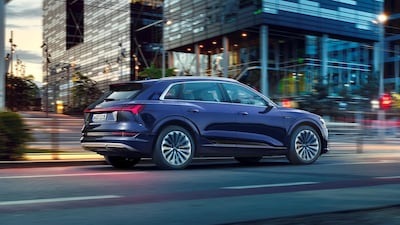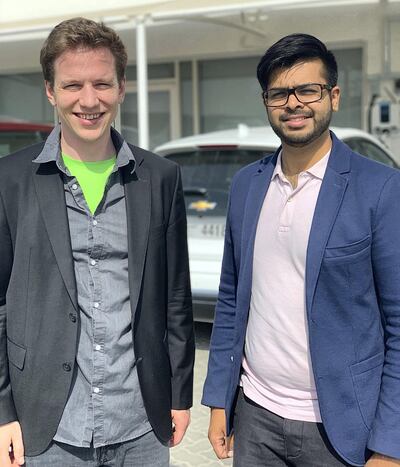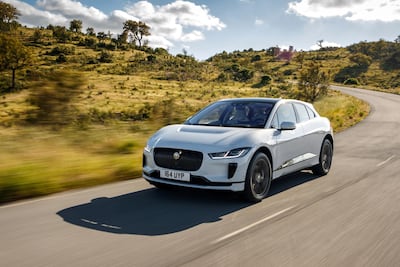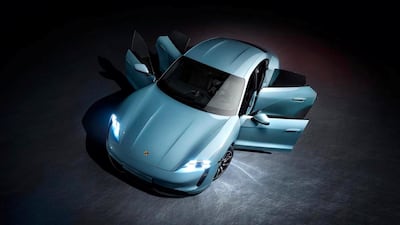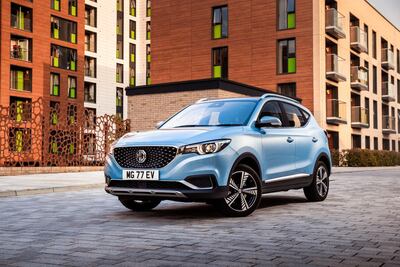"Electric cars are totally impractical." "Are they really even saving the planet?" "And you can't charge them anywhere." Those are the typical protestations of sceptics of tomorrow's in-vogue transport solution: battery electric vehicles (BEV). So we put several anti-EV arguments to the team at Electric Vehicles for Environmental Regenerative Action (Evera), an independent UAE organisation that's all about "sustainamobility", as well as other professionals well read in all things electric.
The argument: Electric cars make no sense in the Middle East
The counter: In our region, motorists have been revelling in big-capacity internal combustion-engined cars for decades, because petrol is cheaper here than in most other places. "Electric cars make just as much sense as petrol-powered cars and clearly have the advantage of not producing polluting emissions," Salman Hussain, managing partner of Evera, says. "With personal EV charging continuing to be available free of charge in the UAE until December 31, 2021, electric cars also make economic sense."
The argument: I worry about the battery range of an EV
The counter: The biggest concern when it comes to electric cars is known as "range anxiety", the fear that a BEV will run out of charge and leave you stranded, particularly during the summer heat. Salman Sultan, the regional public relations and social media manager at Jaguar Land Rover, says he agrees there are several challenges we need to overcome before people are fully prepared to embrace EVs.
“There’s still a need to increase awareness on the reality of EV ownership and why range anxiety shouldn’t be a concern.”
Hussain says there are more than 632 charging points in the UAE – "a number that continues to grow" – so there's no shortage of convenient places to recharge. "The UAE government is without doubt the most forward-thinking in the region and understands that electric cars will be part of future mobility," he says. "They are making rapid strides in developing infrastructure that is outpacing all of their neighbours."
The sophistication of EV battery technology also continues to develop at a rapid pace, he says, so ranges are increasing. For example, the range of the 2020 Chevrolet Bolt EV, which is available in the UAE, has increased by 45 kilometres to 565km, which is good enough for four runs between Abu Dhabi and Dubai. Jaguar Land Rover, which will introduce the i-Pace EV in the UAE this year, also introduced an online calculator tool that works out your range based on where you're driving, air-conditioning use, tyres and external temperature, Sultan explains. For example, it indicates that you lose as much as 166km of range if the outside temperature is 40°C compared to 20°C.
Hussain argues that the loss of range due to hot weather is comparable to driving a regular petrol car, however. "Gasoline is so readily available you don't notice the effects so much, even though there's a lot of wastage. Car engines usually operate at around 25 per cent efficiency."
The argument: Living in a tall residential block means there is no way to charge an EV
The counter: The lack of charging infrastructure for those who live in high-rise buildings in the region is another challenge. But Hussain says the Dubai Municipality is "working hard towards promoting mobility by making it mandatory that new buildings have an EV charger in their car parks".
Meanwhile, manufacturers are playing their part, too. "We need to go further than providing a reliable vehicle," Farah Amhaz, head of brand at Chevrolet Middle East, suggests. "In the UAE, we work closely with GreenParking to help establish a network of aligned and accessible charging stations."
The argument: If I’m out in the desert and run out of battery, I’ll be stranded
The counter: The biggest fear among motorists in the region is running out of charge on a road trip – being stranded in the desert in midsummer could be dangerous, after all. Hussain says that even in those circumstances, it's possible for EV drivers to get going again, however. "Spare battery packs are now also available and you can take these with you to be used as range extenders, very much like you'd carry a spare jerry can of gasoline."
The argument: I’ll spend hours waiting around for my BEV to recharge
The counter: "Forty-five per cent of respondents in a recent survey said they thought electric cars have a long recharging time," Hussain says. "The reality is that most drivers top-up charge rather than wait for their battery to recharge fully. For many electric cars, you can add up to 100 miles [160km] of range in around 35 minutes with a 50kW rapid charger."
The argument: Are there really any health benefits to having more BEVs in a city?
The counter: Particulate pollution is causing concerns about health in the region, Hussain explains. "As the majority of these particles are released from the exhaust gases of diesel vehicles – of which there are hundreds of thousands across the region – a positive change can be made by switching to more health-friendly power sources such as hydrogen, battery or LPG [liquid petroleum gas] variants."
The argument: Aren’t we just transferring the problem from petrol stations to power stations?
The counter: "According to our calculations, running an EV on the UAE's current grid is at least 30 per cent better from an emissions standpoint than gasoline," Hussain says. "This also has the potential to get better in two other major ways – carbon capture from the plant should reduce CO2 emissions to zero and a general switch to renewables, including zero-emission nuclear power."
Sultan says the UAE has a clear vision for a sustainable future. "EVs play a key role in it," he says. "In Dubai, both private and public sectors have shown a solid commitment to helping reduce the nation's carbon emissions by 16 per cent by 2021. The government has invested heavily in incentives to have 42,000 EVs on its streets by 2030."
However, there are also major concerns about the sourcing and mining of materials required to make BEVs. Hussain explains: "Lithium, which is the major material in batteries, is not so much mined as dried in flats, which results in fewer side- effects. Cobalt seems to be a problem material within the sector, but most manufacturers have already signed pledges that they will remove it entirely from their battery chemistry. Meanwhile, cobalt is vital to desulphurising fossil fuels, so we are currently causing exactly the same problems by using gasoline."
The argument: There's not enough choice of BEVs on sale yet
The counter: This is the year we will see a big official push for electrified cars, so expect to witness a stream of new BEVs going on sale in the region, including the Audi e-Tron, Porsche Taycan, Mercedes EQC, as well as more offerings from Tesla. This is in addition to the Jaguar i-Pace, along with the Chevrolet Bolt and Renault Zoe that are already on sale.
But which new BEV model is Hussain most excited about seeing available in the region? "The MG ZS EV," he says. "With a base price of less than Dh100,000, I have no doubt they will enjoy great sales success."
